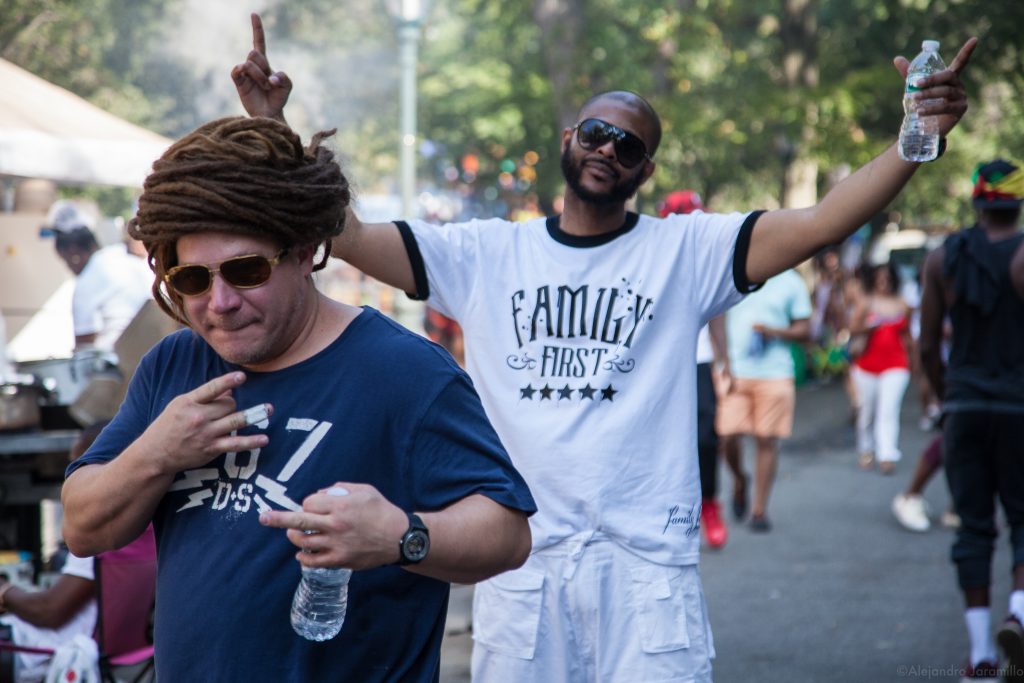At the Heart of the West Indies Parade

In New York City, Labor Day is associated with the West Indies Carnival. This enormous parade is a magnetic force that attracts, on average, one million spectators every year. It is not a space to talk about labor or exploitation. It is a massive celebration of Caribbean culture and heritage.
The carnival takes place in Crown Heights, East Flatbush, and other surrounding neighborhoods of Prospect Park in Brooklyn, where many West Indian families are resisting gentrification. Mists of smoke grill and the strong aroma of curry surrounds the parade. While people eat, trucks loaded with speakers blast every possible genre of Caribbean music, from reguetón club hits to hip-shaking gospels. This creates an ambiance carnivalesque unrivalled by other festivities in any of the five boroughs of the city.
This carnival used to take place in Harlem––once a beacon of African American culture and African heritage in the US. Harlem lost the permit to host the carnival in 1964 due to disturbances. A fact that is perhaps more telling of the political climate than of what the carnival has represented throughout its history: imagine the plausible occurrence, in the minds of officials, of an energetic celebration of African heritage and miscegenation, joining forces with the then growing protests spurred by the Civil Rights Movement.
But the Carnival resisted, and it moved to Brooklyn. A less known festivity that is paired with the carnival, J’Ouvert (or Jouvay, which is creole for open day) breaks out at midnight with drums playing on Flatbush Avenue and then disperses until the dawn of Labor Day. This festivity is not only of great importance due to its ritual significance, but also because it is celebrating the emancipation from slavery. The festivity is tied historically to representations of disruption of social norms and the establishment.
While mainstream media tends to focus on episodic gang-related violence surrounding the carnival (especially during Jouvay), this photo essay attempts to portray the many facets of this massive celebration. Cultural pride, diversity, familial and ancestral ties are at the heart of this parade. Not to mention a surge of creativity.
















































